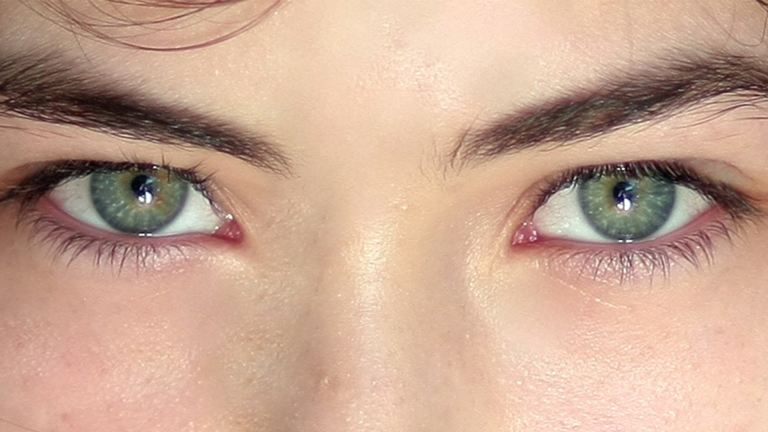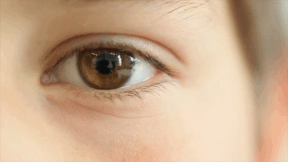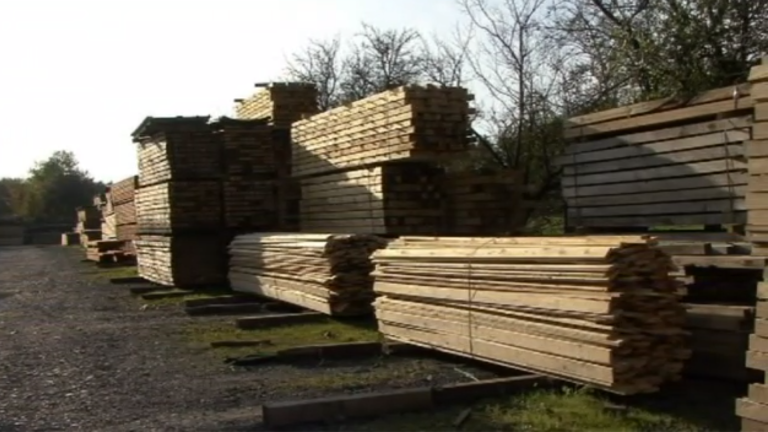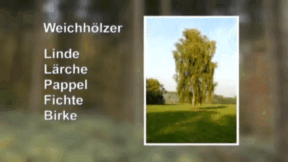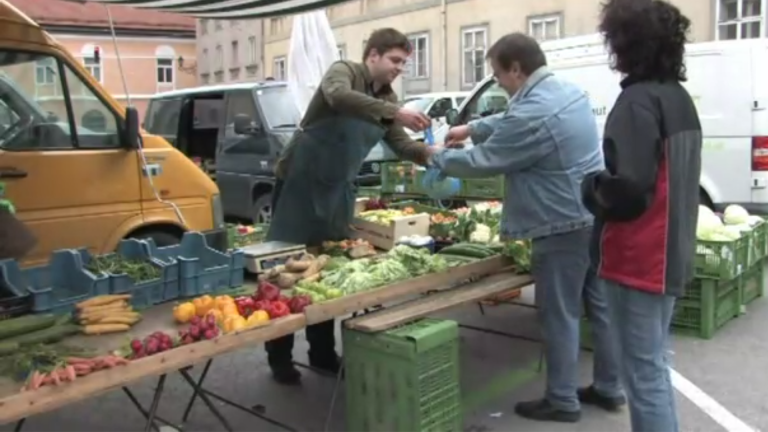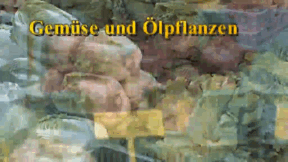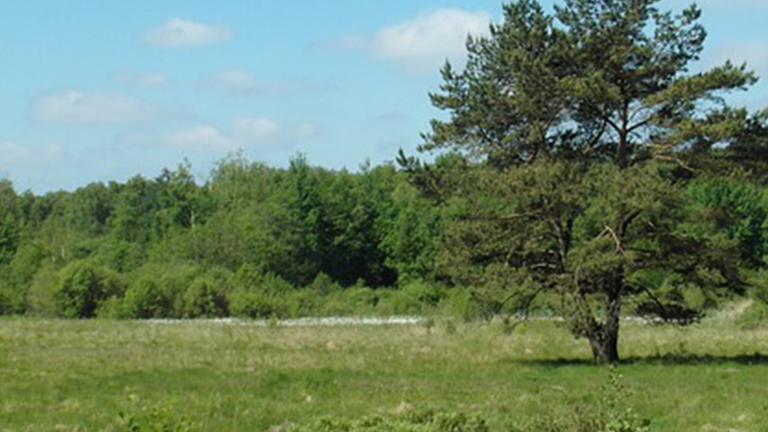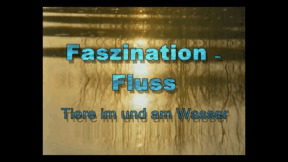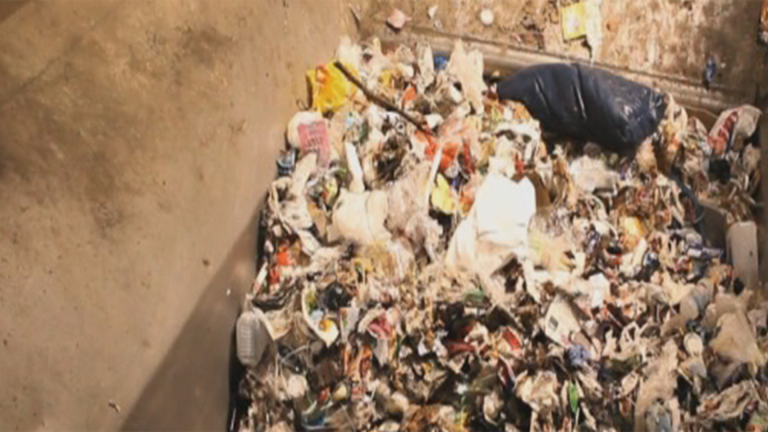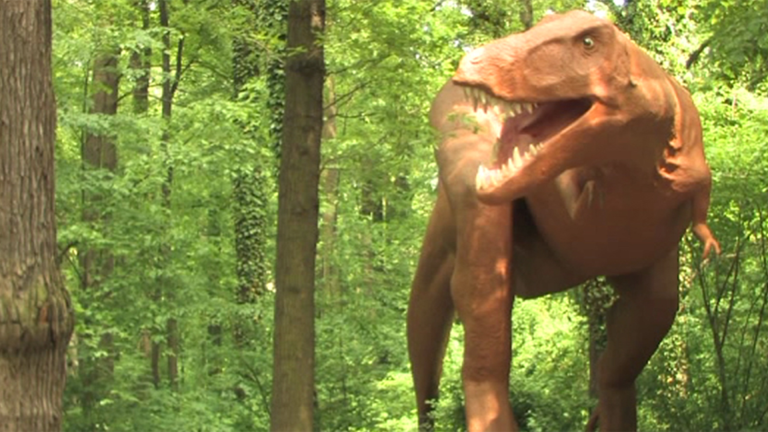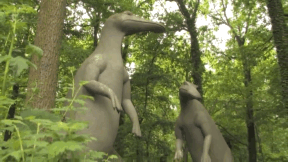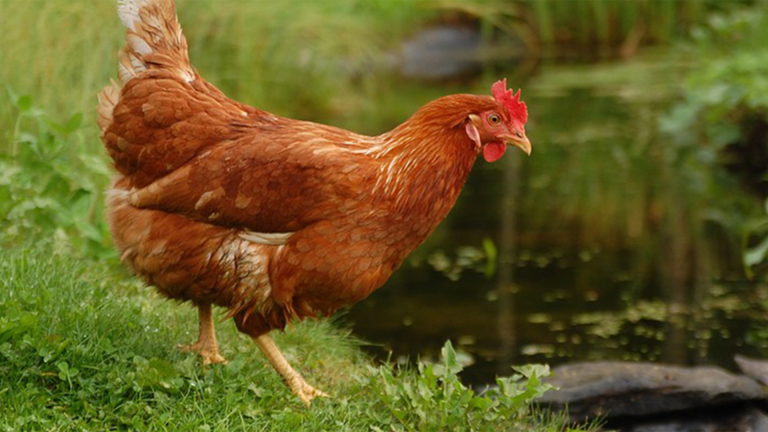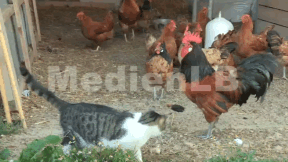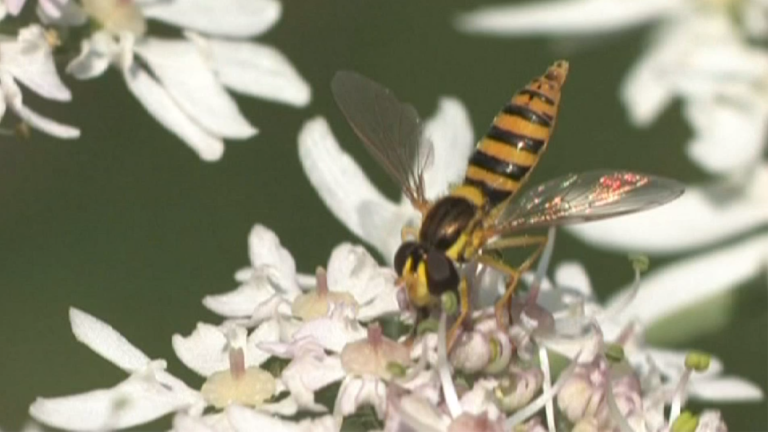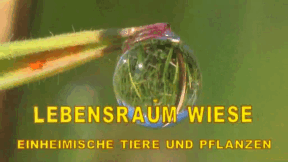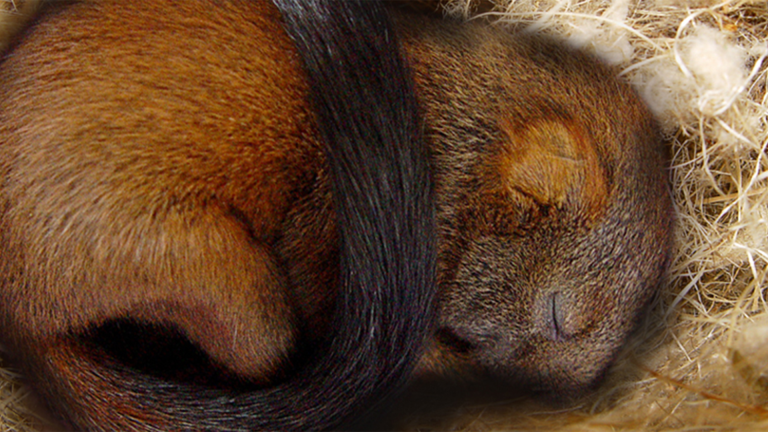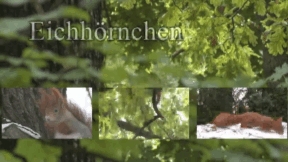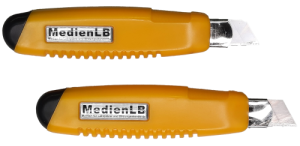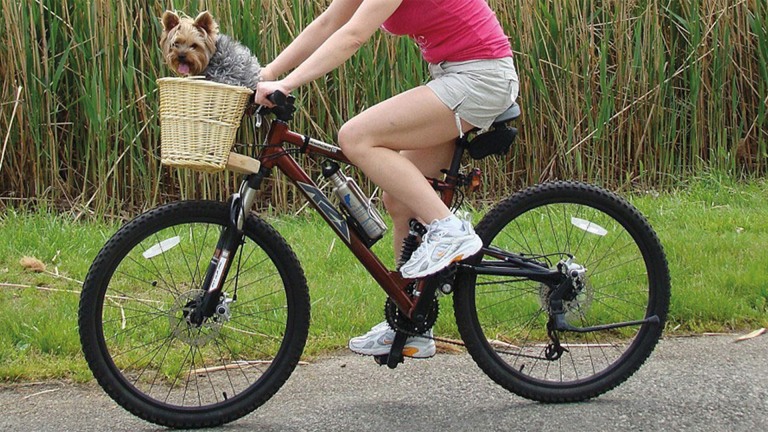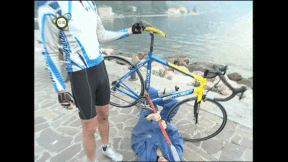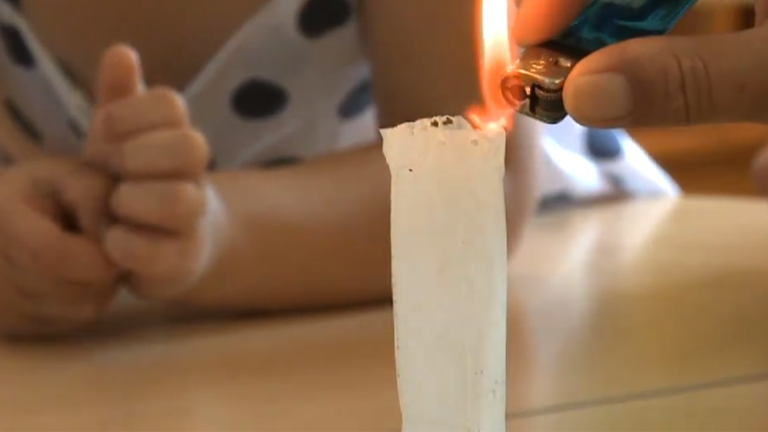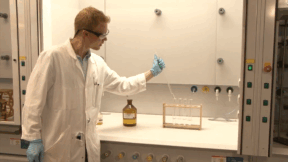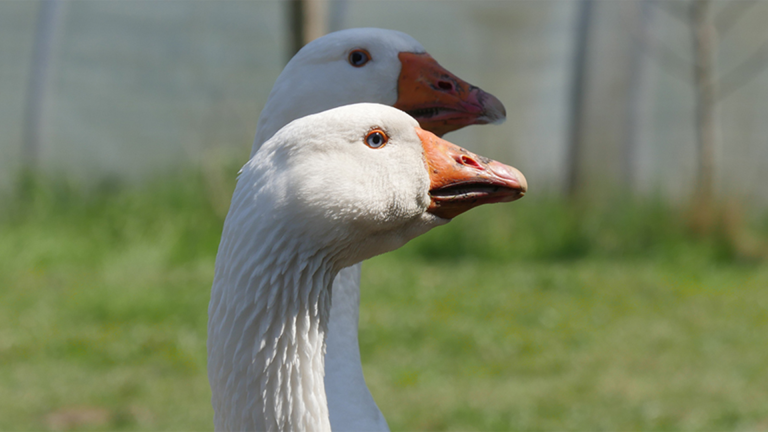Suche:
- # Artistry
- # Biology
- # Chemistry
- # Ecological
- # Economy
- # English
- # Foreign Language
- # Geography
- # German
- # Health
- # History
- # Informatik
- # Latin
- # Mathematics
- # Media Education
- # Music
- # Physics
- # Politics / Civics
- # Preschool
- # Primary School
- # Religion
- # Society
- # Sports
- # Technology
- # Training of Teachers
- # Vocational Education
Eye
The eye is one of our most important sense organs. It provides direct access to the world.
Learn moreWood/Paper/Recycling
The DVD “Wood/Paper/Recycling” provides information on the treatment and processing of wood. The production of paper, an everyday item in our lives, as well as the recycling process are explained to the primary school pupils in a simplified way. The film is also excellently suited for environmental education. The following topics in the subject area of wood, paper and recycling are covered in this DVD: • Wood – a Natural Resource (appearance, properties; types of wood) • At the Sawmill (treatment and processing methods with state-of-the-art machinery) • Paper (everyday use, papermaking, types of paper, properties) • Recycling (waste paper as an important material for the recycling of used paper, recycling technique) • Environmental Protection (conservation of trees, recycling of waste paper)
Learn moreVegetables and Oil Plants
Throughout the whole year, shops offer us a varied assortment of different kinds of vegetables. But where do the vegetables come from? Originally wild-growing, vegetables are crop plants today. They are sown or planted, cultivated and harvested by humans.
Learn moreFascination River
Brooks and rivers cross our country. They burst their banks in their natural course and form many habitats for plants and animals. Let us start on a journey of discovery together and experience nature in all its diversity along an intact river system with running and stagnant waters. Water is the source of life on our planet. The sturgeon is among to the oldest species alive on earth today. Sturgeons are also called “living fossils”, since they occurred already 250 million years ago and have survived, contrary to dinosaurs. The sturgeon spends most of its time at sea. But at the onset of sexual maturity the fish wanders hundreds of kilometres upstream for spawning. The eggs of the sturgeon are caviar. As it is also a popular food fish, it was almost exterminated due to intensive fishing and the loss of its natural habitats. For a couple of years, the sturgeon has been returned to the wild in the rivers Oder and Elbe and one day maybe you'll have the chance to watch it circling around at the bottom of the river.
Learn moreMüllvermeidung
In dieser Ausgabe von "Schau dich schlau!" erfahren Sie alles, was man über Müll wissen muss. Jeder Deutsche hinterlässt jedes Jahr fast eine halbe Tonne Abfall. Wie kann man diesen gewaltigen Müllberg reduzieren? Die Wissensreporter Joey Grit Winkler und Fero Andersen wagen das spannende Experiment und wollen 24 Stunden lang keinen Müll produzieren. Joey Grit Winkler und Fero Andersen wagen ein radikales Experiment und treten in einen Müllvermeidungs-Wettstreit. Sie wollen 24 Stunden lang keinen Müll produzieren. Schnell stellt sich die Frage: Was können die beiden eigentlich noch essen? Wo können sie einkaufen? Und wie vermeiden sie es, mit Werbeprospekten und Verpackungsmaterial überschwemmt zu werden? Das Experiment zeigt, welchen Abfall wir tagtäglich produzieren und mit welchen Tricks wir unseren persönlichen Müllberg schrumpfen lassen können. In dieser Folge "Schau dich schlau!" bekommen die Zuschauer außerdem Antworten auf folgende spannende Fragen: Lohnt es sich, Flaschen nach Farben zu trennen? Landet unser sorgfältig getrennter Müll am Ende doch in der Müllverbrennungsanlage? Welche Trendsportart verbirgt sich hinter dem Begriff "Dumpster Diving", und wie kann man aus dem Datenmüll auf zerkratzten CDs und magnetisierten Festplatten wieder die ursprünglichen Informationen zurückgewinnen?
Learn moreDinosaurs
Dinosaurs lived on our Earth about 160 million years ago. There are several theories as to why they became extinct about 65 million years ago but the fascination with these creatures is still there. We can look at dinosaurs in dinosaur parks. People have reconstructed dinosaurs based on their ideas of what they might have looked like. In an age appropriate way the following questions are addressed in the film: When did dinosaurs live? What did the Earth look like at the time of the dinosaurs? How did dinosaurs live? Were dinosaurs clever? How do we know about dinosaurs? Where did the dinosaurs get their funny names from? Why did the dinosaurs become extinct? A special highlight is the chapter “Dinos Present Themselves“. A selection of dinosaurs, speaking in different voices, convey information on the various species to the children. Together with the extensive accompanying material the DVD is ideally suited for project work in the elementary sector.
Learn moreThe Meadow as a Biotope
This DVD offers an insight into the plants and animals typically found in the meadow biotope. In an easily comprehensible way, primary school pupils experience a small, exciting world where various kinds of animals and plants co-exist. The film aims at improving the children’s understanding of animals and at arousing their curiosity for plants and animals. The DVD covers the following aspects of the topic of “meadows”: Types of meadows (creation of a meadow, marshy meadows, dry meadows, wet meadows, fertilised meadows); plants of meadows (cowslips, buttercups, dandelions and many more); layers of the meadow and animal habitats (on plants, on and in the ground, etc.); interference with the diversity of species (effects of mowing and fertilising on the meadow); protection of the meadow (responsibility of humans for nature); use of meadow plants (in medicine, human diet).
Learn moreSquirrels
The DVD presents the squirrel in its natural habitat, the forest. Fantastic nature scenes help primary school children to get to know the behaviour of the squirrel in a way that is easy to understand, thus providing them with an important insight into its needs. Its characteristic body structure that makes it an agile acrobat is pointed out and explained.
Learn moreFahrrad
Das Fahrrad ist nicht nur das erste Individualverkehrsmittel gewesen, es ist bis heute auch das preiswerteste geblieben. Fahrradfahren ist zum Lieblingssport der Deutschen geworden. Fero Andersen macht auf dem Rennrad eine Rundtour um den Gardasee. Mit dabei ist ein Fahrradprofi und ein eher untrainierter Mensch – was passiert im Körper der drei Radler? Ist Fahrradfahren wirklich so gesund wie angepriesen und wenn ja, warum? Joey Grit Winkler nimmt mithilfe eines Profis die verschiedenen Fahrradtypen unter die Lupe und erklärt ihre Vorzüge: Rennrad, Mountainbike, Trekkingrad, Cruiser und Co. – für welches Terrain eignen sie sich am besten? Die Redewendung „Das ist wie das Fahrradfahren – das verlernt man nie!“ wird häufig verwendet. Wir gehen der Sache auf den Grund: Welche Fähigkeiten brauchen wir, um Rad zu fahren, und warum verlernen wir es nie? Ein modernes Fahrrad besteht aus Tausenden von Einzelteilen – wir zeigen, wie aufwendig die Produktion der heutigen High-Tech-Fahrräder ist und wie akribisch die Fahrräder getestet werden. Was muss ein Fahrrad alles haben, um in Deutschland eine Straßenzulassung zu erhalten? Außerdem in der Sendung: Wie viel hält ein Fahrradhelm aus? Wie schwer sind Fahrradschlösser zu knacken? Dazu gibt es die besten Tipps von einem Fahrraddoktor, wie man ein Fahrrad schnell und einfach repariert.
Learn moreResearch Made Easy
There are people who much enjoy finding out things that nobody has found an answer to yet. These people are called scientists. They work to ensure that we humans are able to understand our world better. They discover lots of things that nobody knew before. Or they discover something that occurred so long ago that there is nobody who can remember it any more.
Learn moreGeese
“They’re gabbling like geese”, “she’s such a stupid goose” or “silly goose”– those are commonly known sayings.
Learn more



